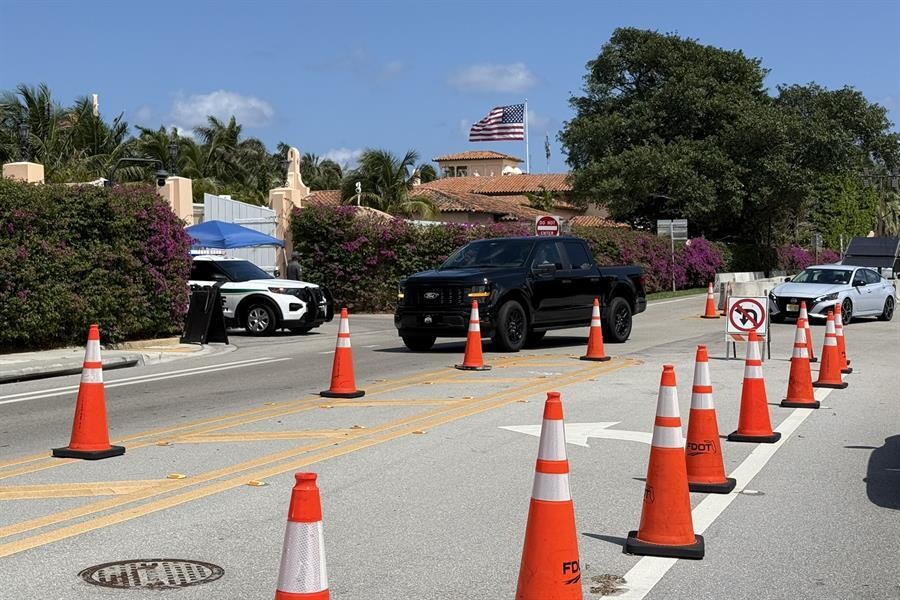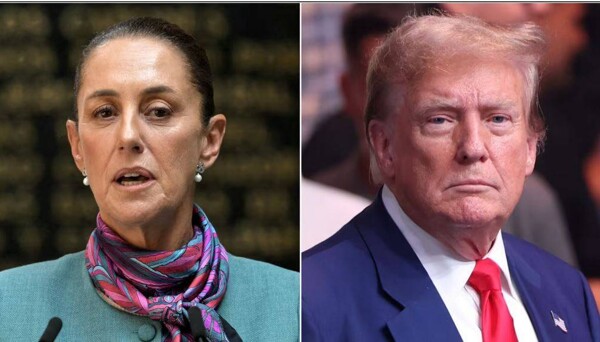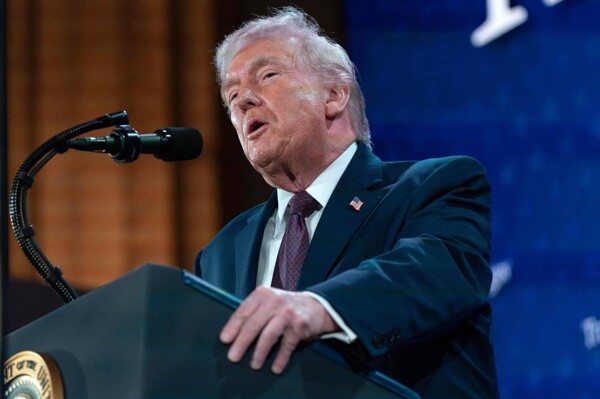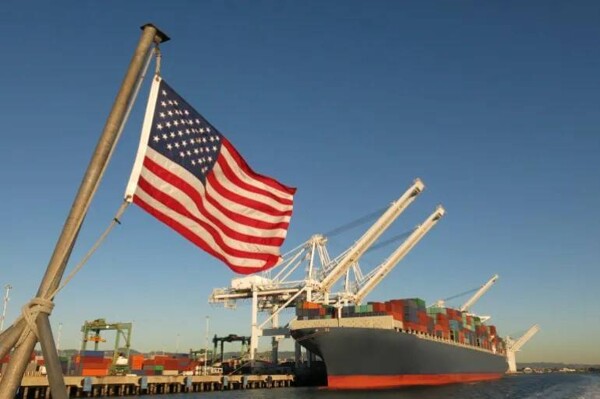
The sixth visit this weekend by President Donald Trump to his Mar-a-Lago mansion once again caused complications in the city with roadblocks, losses due to restrictions in airspace, and the growing fear among local authorities that high security expenses will not be reimbursed by the federal government. Residents of the small island of Palm Beach, where the residence is located in the county of the same name, and nearby areas are enduring the disruptions with a mix of resignation and frustration. Some try to see the positive side, but in interviews with EFE, everyone agreed that 'the problems are annoying.' 'If you close one (street), you're blocking a third of the local traffic,' said a man who keeps pro-Trump campaign signs in his yard and avoided giving his name.
Local residents reported this weekend that a journey that requires 15 minutes when traffic is open can turn into an odyssey of more than an hour. Palm Beach remains on edge, waiting for answers from the federal government about reimbursement and adapting to the new reality of being, once again, the 'Winter White House.'
'As a benefit, it becomes the safest place in the United States or the world,' the man stated. During the presidential stay, the Federal Aviation Administration issues a temporary flight restriction in a 30 nautical mile area (about 55 kilometers). Residents of Flamingo Park, a neighborhood three kilometers from Palm Beach International Airport, are suffering from the measure. Flights departing from there are forced to change their routes every time Trump is home, taking them right over their houses.
'Official figures show a 16% increase in air traffic at that airport since the first Trump presidency,' commented Christopher Ely, a university professor of Russian history, who has lived in the neighborhood for 20 years. Owners and managers of nearby local businesses also declined to be identified. 'When the planes pass by, you can't even talk. There are only three ways to enter the island.' There are also flight schools and helicopter companies operating there, with about 772 employees.
In 2017, flight restrictions cost them $30,000 daily. According to official data, there have been 20 violations of the airspace of commercial flights this year, which has necessitated the intervention of fighter jets. Steven Armstrong, deputy director of the North American Aerospace Defense Command, mentioned that each of these incursions costs taxpayers about $50,000.
Verdenia Baker, the Palm Beach County administrator, stated that $45 million has been spent on security measures. The big unknown is if and when a federal reimbursement for this money will be received. Jonathan Miller, president of Stellar Aviation, said he lost half a million just in 2018. 'We prefer to remain neutral,' said the bar manager.














